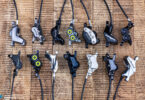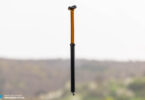You will doubtless come across many headlines like this. And they all have one single goal: To grab your attention. And before you even know what’s happened, you’ve bought a wonder drug, or you’re stuck with articles like this one. But this one is different – promise!
“The internet is new territory for all of us” were the much-discussed words of former German Chancellor Angela Merkel, and while she was laughed at by many in 2013, she was not entirely wrong. Few of us would openly endorse this sentiment, but nevertheless, this thing called the Internet forms quite a big black hole in which no one really knows what’s going on, and in whose depths we have all become lost at one time or another. Honestly – who can really resist the pull? Like drug addicts, we binge on YouTube, Insta or Tiktok, always looking for the next rush of information or brief amusement. Over the last two decades, our consumer behaviour has changed drastically. Yep, that was the time when we had Tamagotchis, but no iPhones, no Facebook, no YouTube or Spotify. Whether influencers, legislators or users, hardly anyone can grasp the internet in its entirety, and hardly anyone has learned to deal with it properly. Welcome, AI…

Maximum sensory overload, minimum attention span. Combine that with addictive content and algorithms, and it can quickly become overwhelming. Of course, there are also endless possibilities for research and enlightenment. However, anything beyond the depth of a TikTok video is already unacceptable for most – they just keep on scrolling. The “media victims of this internet thing” are not only to be found on trash TV. They are everywhere, and that includes our industry, both offline and online. After all, our beloved sport offers a hell of a lot of potential for consumption. Racers, media, influencers and manufacturers are in a constant duel for your attention, advertising with gritty action, bling-bling components, fail videos and wild ideas. Even when there’s no bike to be seen, it’s about the good life, cool campervans and outdoor gadgets.
Don’t worry: We don’t want to point fingers at others here, but rather openly reflect on what we are doing too. Because we as a magazine also fill your screens and minds. The same applies to content creators like Jasper Jauch, whose fist appears in our cover for a reason. On a camping trip together, we had a long discussion on the trail and around the campfire about this very issue, and raised some important questions that concern us all: Are we actually generating the content we really want? And what does it do to readers, followers and consumers? Are we creating new freedoms or new dependencies? Do we promote mental health, or rather consumerism by reporting on the hottest bike spots in the world, the latest training methods, or sinfully expensive bikes and parts?
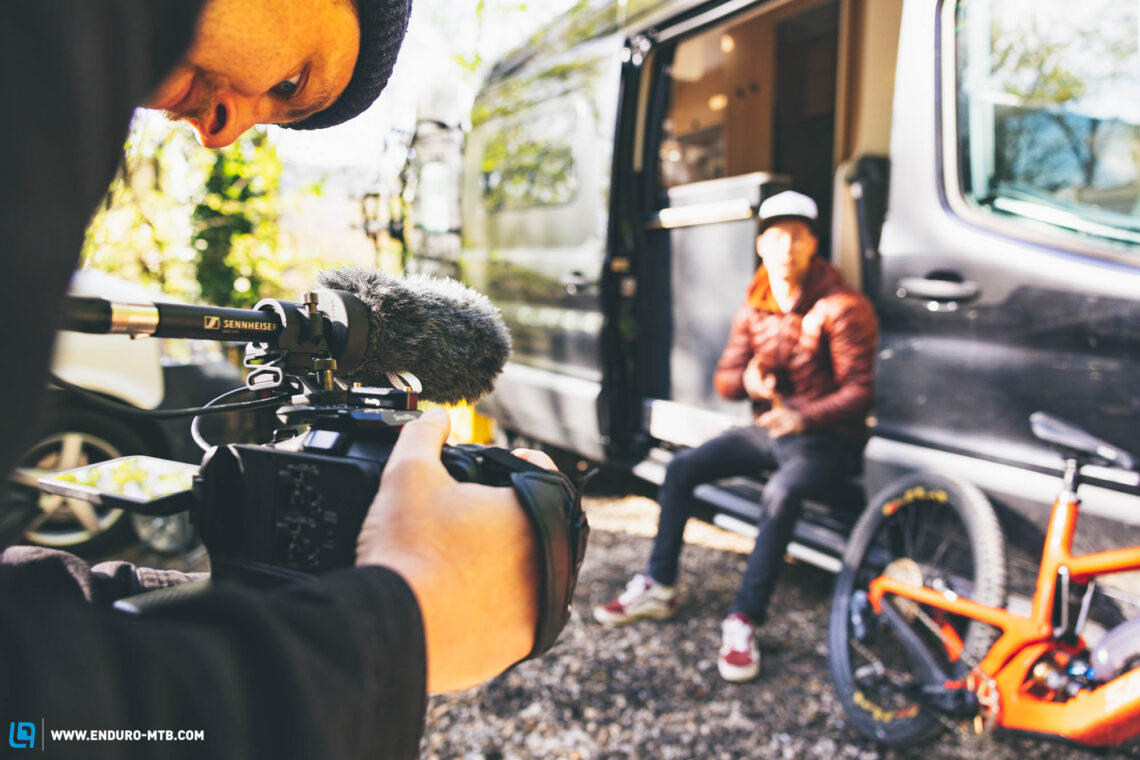
Smart convenience or stupid consumer?
Many apps or websites today are tailored directly to you and your preferences. Your new dream bike, which you were chatting about with your mates just a short while ago, is suddenly the first thing you see on Instagram. The latest components pop up as advertisements while you’re checking the weather report, and the online shop suggests adding tubeless sealant to your shopping cart. There’s always a use for it, right?
No matter where you go, it’s tracked, listened to and filed somewhere. At least; that’s how it feels, but who really knows. In some cases, it is enough to simply linger a little longer on an Instagram post, and our preferences are already saved. And possibly only because the courier service has just delivered the tubeless sealant you didn’t really need, making you put your unlocked mobile phone aside for a moment. Data is the new currency of the internet, and heads of state, politicians and businessmen are fighting in court with data protectionists and secret services over the use of it. No wonder, because data is of enormous value when used correctly. Anyone who doesn’t want to play along here has to actively resist, and that’s no easy task. At the same time, the crux is that everything looks so tempting and fits so well with your current needs. Because somehow it’s kind of cool when someone or rather something knows exactly what we want. Hasn’t everyone dreamed of having their wishes literally read from their minds before they’ve even opened their mouths? Tadaaa – well, what do you know!

Attention, please!
Brandon Semenuk flies through the air in a double tailwhip and lands as softly as a feather. Next. Torn shirt, scratched handlebar and broken bones because the drop didn’t work out after all. Next. Awesome panorama, high mountains and a single van driving along the alpine road, all alone at sunset. Next. Clicking freewheels, bling parts and outrageously expensive tools with which the next cool bike is put together. Next. Social media.
Everything gets consumed, as quickly as possible and as much as possible. After all, you don’t want to miss out on anything. Ironically, however, you don’t waste precious time either. Where do your mates hang out? Which bike park might already be open, and are there any new fancy parts or extreme crashes in time-lapse that you can send out quickly? Everyone has a good time, great stuff and cool locations, while you’re stuck here in everyday life not knowing what to do with yourself.
Are we busy content creators really better off for it? There’s the constant pressure to find new ideas, invent new content and stand out from the crowd. Travelling to fancy places, ordering the craziest food or waiting for hours for the best light, only to quickly take a photo from every angle and present it to the internet. The actual beautiful moment, the great atmosphere or the genuine culinary experience is usually completely neglected, leaving no room for real pleasure. However, it definitely should not look posed, but appear to be completely natural. After all – anyone can experience this at any time. The fact that it’s exhausting, that you’re really annoyed when something doesn’t work the first time, or that you can hardly sleep after all those productions, discussions and kilometres on the road – that doesn’t have to be captured. Just capture the attention, no one will question the effort behind it, right?
Attention has always been a business. In ancient Rome or the Middle Ages just as much as during the golden age of the shopping mall or nowadays on Tiktok. Who shouts the loudest on the market? Who manages to attract the attention and interest of the customers? The problem today is that anything and anyone can become a bellowing billboard. And the platforms and algorithms reward precisely those who can attract that little bit more attention – regardless of the quality or value of the content. And the best thing about the times we live in? It’s not only local competition like there was at the market back then, but people from all over the world are shouting and the loudest wins.
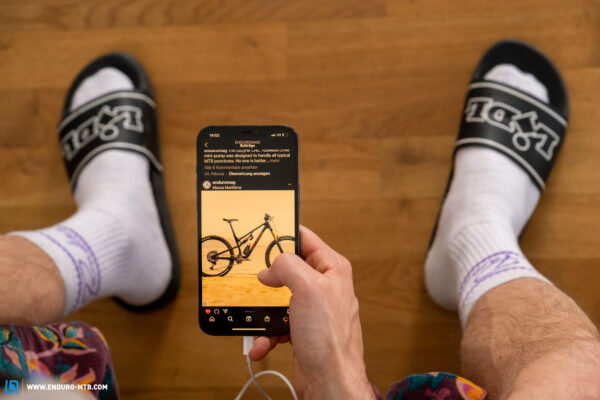

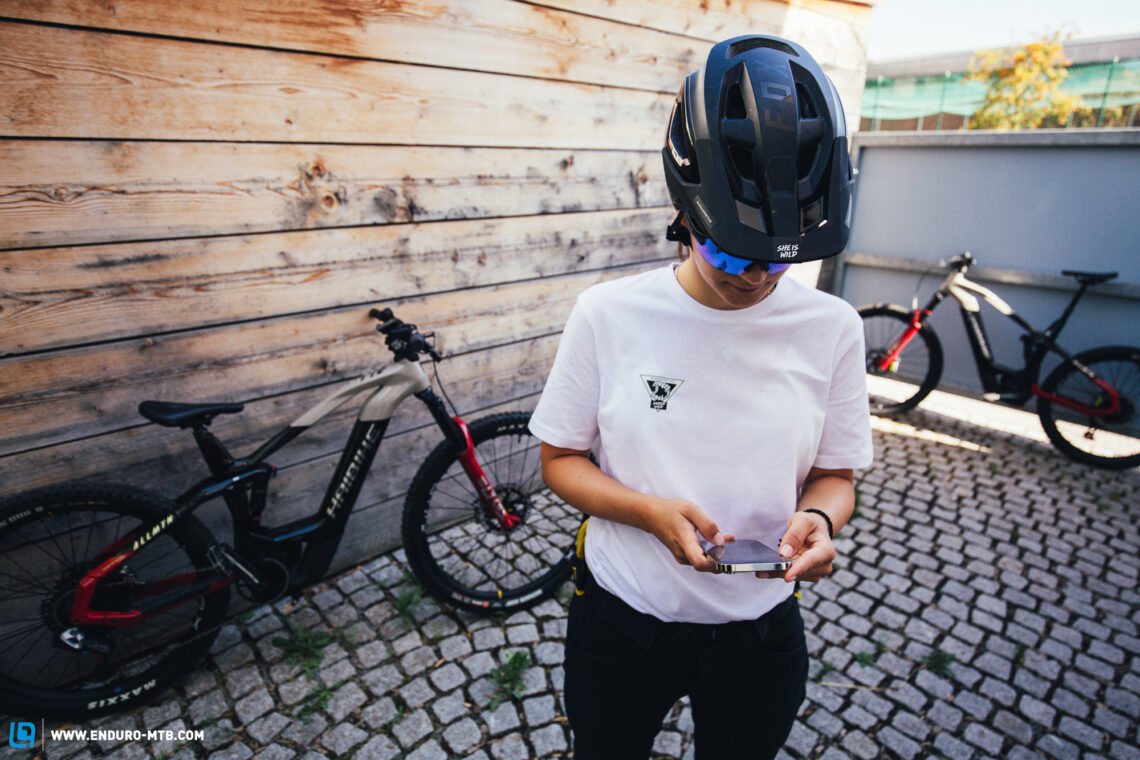
Always online
In order to stand out from the crowd as a content creator, you often have to dig deep into your bag of tricks to catch the fast-moving attention and display clever strategies. The competition never sleeps. Literally! This costs time and nerves, and requires a great deal of stamina. Things are staged, faked and only the absolute highlights are presented on the internet.
In addition, there is the constant pressure of competition. What are the other magazines, influencers or the former bike buddy doing? The similarly cool bike, the similarly pretty love interest or the same cool van? Fuck – how do I stand out? It doesn’t matter if you’re a professional influencer, a big magazine, or just posting on your private Instagram account.
The pressure increases even more if there is money involved, or if your entire income and thus livelihood depends on it. If you don’t work for an established publishing house and earn a regular income, you’re primarily on your own or in a small team constantly fighting for sponsors, supporters or donations in order to keep producing new content. A holiday? Difficult. If people don’t hear from you for a few weeks, you quickly drop out of any algorithms. No attention, no clicks, no money…
The psychological burden is enormous and has already cost many victims. Increasingly, we see bike pros leaving social media for a shorter or longer period of time, or entrusting others to take over for them. Did you know, for example, that stars like Loïc Bruni rarely post anything themselves? But unfortunately, not everyone can afford this luxury, as mountain biking is rarely a big money business, which means that other ways have to be found to finance life, and the lifestyle that goes with it. Looking at professional sports in general, it is striking that in sports with higher paychecks and bigger bonuses, there is much less social media presence and self-promotion. For many in our sport, social media is inadvertently becoming an integral part of their work and for most there is no way around it, having found sources of income that promised freedom but in the end lead to stressful dependencies on algorithms.
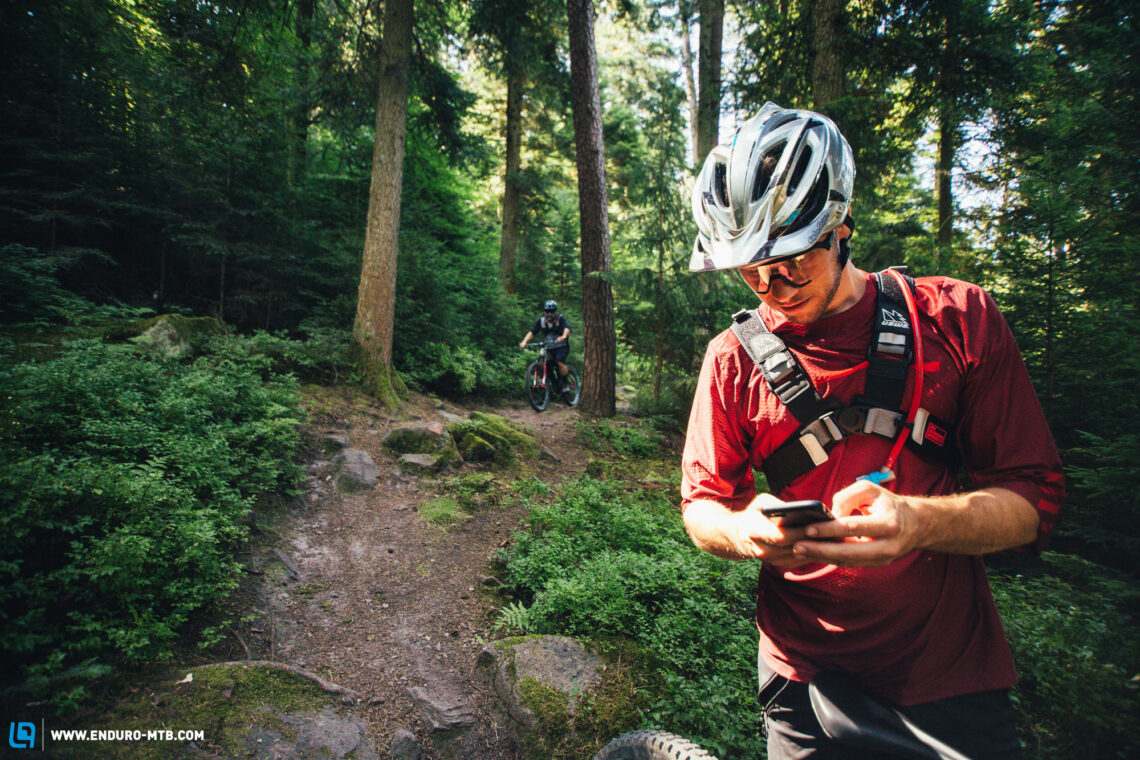
What now?
Time to take back our independence. But how? There is no perfect solution, but one important question. What is actually good for us? Or the other way around: What is not? Not only during consumption, but especially afterwards. Limiting screen time, or turning off your phone and putting it aside – the well-intentioned advice of our parents is catching up with us again, when it comes to the propagandised advantages of AI: primarily the gaining of time. If you take a deeper look, it’s about well-being, energy and health. Digital detox – the term is usually thrown around excessively without ever really implementing the concept. Only when you free yourself from the pressure do you (re-)discover true, enriching values that form the foundation of life, such as friends, happiness and enjoying nature. And as if by magic, dopamine and serotonin flow – self-produced drugs that we otherwise try to conjure up extrinsically with consumption, for a short-lived high that you try to top with ever more consumption. It’s refreshing to break out of the pull to do what apparently everybody else is doing, but actually do what feels right to you. Even if everything out there looks like the good life, good times and good money, we now know that, more often than not, this is not reality. From personal experience, too!
Even as a content creator, you quickly become an addict who suffers the same fate as your followers, being constantly inspired, impressed and influenced by the competition. Pressure to perform and fear of missing out? Absolutely! Moreover, it can be really nerve-wracking and frustrating to have to constantly play by the changing rules of the platforms, fighting for even more attention with the next idea. Not without reason, Jasper has made it clear that his focus is on sustainable content that still offers added value for the viewer after a few years. And for him, taking a regular break from social media is part of getting away from fleeting consumerism. As ENDURO Magazine, we have also decided against platforms such as YouTube and Co. and are working hard on building up our own channels like the free app and our newsletter. That’s the only way to have the greatest possible control, and not be dependent on unpredictable algorithms and rules from others. This way we can produce and publish as much content as we see fit, without flooding you with dramatised videos and news. Instead, we can fully concentrate on the quality of the content. In the end, though, everyone has to decide for themselves, figuring out which system works best for them. It is important to develop an awareness and to have the will to also try or change something sometimes. Starting with no longer playing every game.
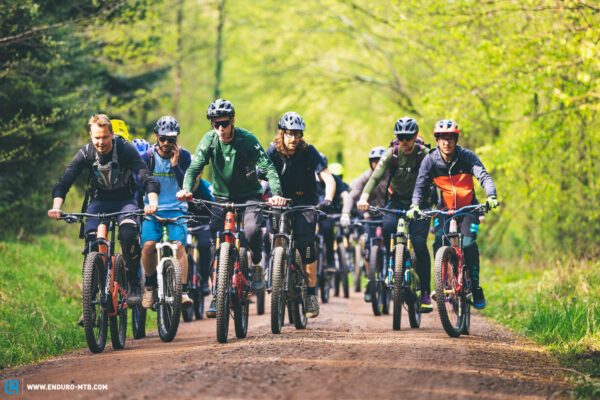
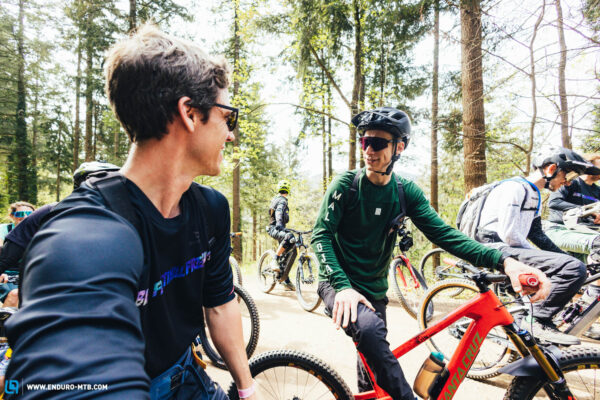
Our beloved MTB lifestyle, which brought us all here, is a prime example of modern (media) consumption and that’s okay – within certain limits. Not only during our campfire chat with Jasper that day, but also in general, we believe it is important to ask ourselves if we are living the way we actually want to. To keep questioning ourselves and be reflective. In any case, it is time to reclaim our independence.
There is no miracle cure against clickbait and attention theft – like everything in life: It’s up to you alone and requires discipline. Rarely is the moment as beautiful as it is portrayed to be, and rarely is the work as simple as it looks. Conscious consumption is healthy consumption, and occasional time out never hurt anyone – rather, you will learn what has real value. Just try it out (again), even if you think you might not need it. See you then *zap
Did you enjoy this article? If so, we would be stoked if you decide to support us with a monthly contribution. By becoming a supporter of ENDURO, you will help secure a sustainable future for high-quality mountain bike journalism. Click here to learn more.
Words & Photos: Peter Walker






